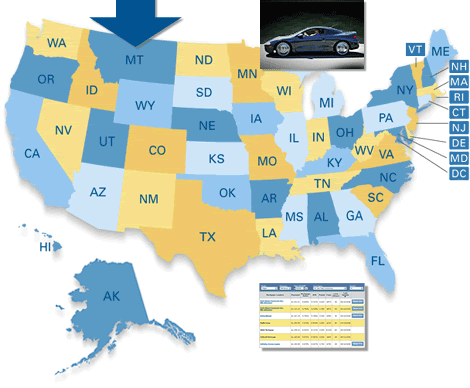Automotive Loans: Trade In or Sell a Car?
by Amy Lillard
(2/7/2013) If you're purchasing a car to replace your current car, you face a choice — trade in or sell outright?
Trading in a car involves bringing it to the dealership and offering it as part of your purchase price. The dealer will examine your car and specify the amount they will pay you, which can then be used as part of the down payment for your next car.
There are distinct benefits to trading in a car:
• Simplified process. When trading in a car there's no need to advertise, field disparate offers, and take excessive time out of your schedule. There's no need to worry about the intricacies of title transfer and other ownership issues. You simply bring the car to the dealership on the day you wish to purchase your new car. Once a price is negotiated the dealer handles the entire transaction.
• Reduced loan. Using a trade in can significantly increase your down payment, which reduces the amount you need to finance. This will save you money in the short term on monthly payments, and over time in the form of interest.
• More options. If you're still financing a car you wish to sell, dealers are far more equipped and likely to take the trade. They'll contact the lender and pay off the balance, ensuring a smooth transition.
• No takebacks. When trading in, the dealership assumes all responsibility for the vehicle and mechanical issues. Whereas a private buyer may try to seek additional money after the fact if an issue comes up, once you leave the dealer you will not be contacted about the car again.
Another option available to car buyers seeking to sell their current car is to sell outright. This will involve advertising the car and seeking a private deal. There are definite benefits to this route as well:
• Better deal. The price offered by dealerships on trade ins is often less than what owners can get through private sales. Their goal is to obtain the car at a discount, counting on the convenience offered at their dealership to get people to agree to lower purchase prices.
• More options to buy. By selling privately, you can shop at any number of dealerships. Trading in will typically restrict your purchase to that specific dealership.
Other related articles:
Automotive Loans: What Laws Protect Car Buyers?
Automotive Loans: Determining a Down Payment
Automotive Loans: The Truth About "Add-Ons"
Automotive Loans: Negotiating a Loan with a Dealer
Automotive Loans: How Much Car Can You Afford?
Automotive Loans: Buying Vs Leasing
Automotive Loans: Applying for a Car Loan
Avoid advertised auto trade-in, loan pay-off rip-offs
Auto sales, loans hit the speedway
High MPGs and low auto loan rates can save you thousands of dollars
Research your options when shopping for an auto loan
How to drive a hardauto loan bargain
Special Report: Hitting the Brakes on Auto Dealer Loans
Buying vs. Leasing: A Comparison
Closed End Lease or Open End Lease
 A frequent contributor to ERATE® since 2006, Amy Lillard is a freelance writer specializing in turning complex information into useful tips and tricks for readers. For questions or topic suggestions, contact Amy at [email protected].
A frequent contributor to ERATE® since 2006, Amy Lillard is a freelance writer specializing in turning complex information into useful tips and tricks for readers. For questions or topic suggestions, contact Amy at [email protected].
New and Used Auto Loan Rates
Choose Your State Below

Start by selecting your state

Amy Lillard
The ERATE® Resource Guide to No-Closing-Cost Refinancing
Principal Reduction: New Programs, More Controversy
Understanding Mortgages: Mortgage Paperwork
Understanding Mortgages: Types of Mortgages
Understanding Mortgages: How to Get a Mortgage
Understanding Mortgages: Buy or Rent?
Understanding Mortgages: Working with a Real Estate Agent
Understanding Mortgages: Working with a Real Estate Agent

Automobile Buying/Financing
5 Steps to Find the Perfect Car
Auto loan defaults to rise 7 percent in 2010
Auto Show Season Tips for Buyers
Consumer Reports suspends recommendations for Toyota's recall models
When is the Best Time to Buy a New Car?
Making a Vehicle Purchase? Enjoy These Helpful Tips
Chances are, your next car will be used. Drive a hard bargain
What your car is really saying
2012 President's Day auto sales among best ever
Special Report: Hitting the Brakes on Auto Dealer Loans
Auto Insurance
Buying Ins - Shopping for Insurance
Best Car Insurance Plan for You


